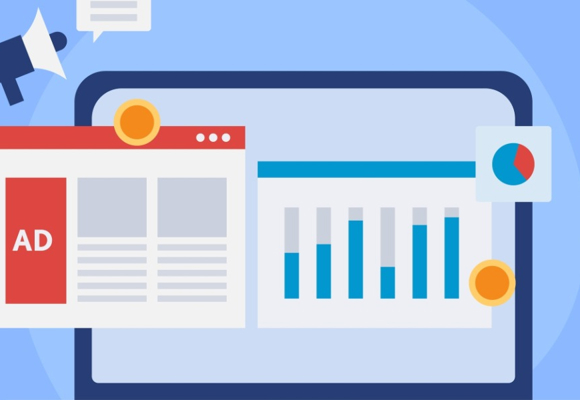November 22, 2023
The needs of a small e-commerce startup differ from those of a large manufacturing corporation. Tailoring your approach for each group ensures that your marketing resonates with them. This simple logic is leading many B2B (business-to-business) companies to recognize the value of personalization in their marketing strategies. If you’re interested in how personalization can be leveraged in a B2B context to increase sales and customer retention, read on.
How is B2B personalization different from B2C?
B2B and B2C personalization share the common goal of enhancing customer experiences. In B2C, the focus is on targeting individual consumers with tailored product recommendations, content, and offers based on their past behaviors and preferences. You’re focused on each individual, using data that can explain and predict how they might act online and what they might enjoy seeing.
B2B, on the other hand, involves marketing to other businesses or organizations. In B2B negotiations, you’re not addressing individual consumers or individuals. There is the added challenge of dealing with a larger decision-making unit within another company. The sales cycle in B2B contexts is usually much longer and requires buy-in from multiple stakeholders. This makes the process slightly more intricate and complex.
The Benefits of B2B Personalization
If your B2B operation is struggling with high-quality lead generation, it might be time to reconsider your B2B personalization strategy. By tailoring your messaging to the specific needs and pain points of your target customer, you can increase their interest in your products or services. In this way, you can engage high-potential leads more effectively and even begin generating referrals. When your outreach speaks directly to their specific experiences, you're more likely to convert leads into customers.
After you’ve gotten those referrals, personalization can assist with keeping them! Personalization doesn't stop once you've acquired a customer. It extends into post-sales interactions. By continuing to offer personalized support, content, and recommendations, you can enhance customer loyalty and encourage repeat business. This same idea applies when your main customers are organizations or other companies.

Many of the same strategies used in traditional digital marketing can apply to B2B companies. Of course, several tweaks and adjustments are needed. Even still, these classic personalization strategies can bring your B2B marketing efforts to the next level.
Target Audience Segmentation
Segmentation is the core of B2B personalization. Instead of treating all your B2B leads and customers the same, divide them into groups based on characteristics like industry, company size, job role, or pain points. Create categories that make the most sense for your industry, and separate accordingly. This allows you to create more relevant content and offers for each segment.
Data Collection and Analysis
You’ll need data in order to personalize your B2B marketing. Collecting data is essential for understanding your customers and prospects. This data can include website behavior, email engagement, and past purchase history. Utilize customer relationship management (CRM) tools to centralize and organize this information.
Once you have the data, use it to create buyer personas for your various customer segments. These personas are fictional representations of your ideal customers, complete with demographics, pain points, and goals. When you have a clear understanding of your audience, you can craft highly personalized content and messaging.
Content Personalization
Try tailoring your blog posts, whitepapers, case studies, and other content to address the specific challenges and interests of each segment. If you're targeting HR managers in the healthcare industry, create content that speaks to their unique needs within this setting. The same goes for any sort of B2B clientele.
You could even try setting up dynamic content on your website. This feature allows you to display different content to visitors based on their profile or past interactions with your site. If a visitor from a software company is looking at your website, show them content related to software solutions, not manufacturing. This level of personalization can really transform engagement with your website.
Account-Based Marketing (ABM)
Account-based marketing is a hyper-personalized approach often used in B2B sales. With ABM, you focus your efforts on a select group of high-value target accounts. This involves creating personalized marketing campaigns, content, and outreach strategies specifically for these accounts. ABM is particularly effective for industries where a small number of clients can have a significant impact on your business.
Email and Outreach Personalization
Personalized email marketing is another effective B2B strategy. When reaching out to leads or existing customers, avoid generic, one-size-fits-all messages. Craft personalized emails that reference the recipient's company, industry, or recent interactions with your brand. Even simple personalization, such as using the recipient's name, can make a big difference.
Personalized Marketing Challenges and Considerations
Any personalized marketing strategy creates the need for accurate and up-to-date data, which can be tricky to obtain. Outdated or incorrect information can lead to personalization efforts falling flat. Regularly clean and update your data to ensure its accuracy. You’ll also need to maintain the balance between personalization and privacy.
B2B customers are becoming more cautious about their data, especially in light of data breaches and privacy concerns. Ensure that you are transparent about how you use customer data. Obtain proper consent for any personalization efforts.
The Future of Personalized Marketing in B2B
B2B personalization is a valuable strategy for increasing lead generation, improving customer retention, and boosting conversion rates. It differs from B2C in its complexity and focus on business relationships. To succeed in B2B personalization, segment your target audience, collect and analyze data, personalize content, and consider strategies like Account-Based Marketing and personalized email outreach. Be mindful of challenges such as data accuracy and privacy concerns as you implement your personalization efforts. When done right, B2B personalization can set your business apart and drive meaningful results.
Connect with Your Customers!
Let's talk about personalized marketing and how you can use it to connect with your customers.


